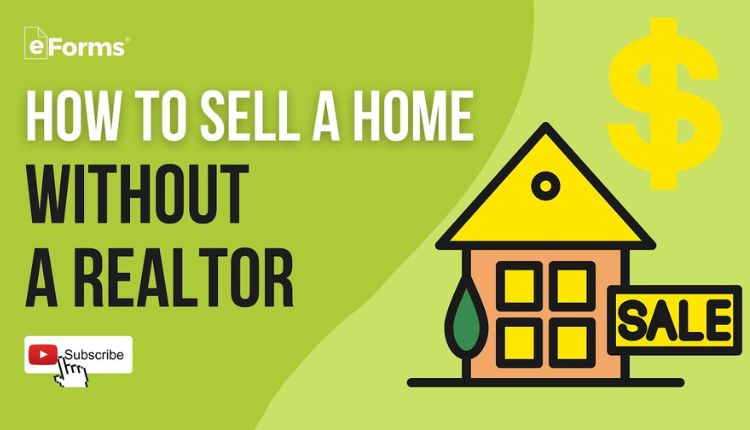
How To Sell My House Without A Realtor
When understanding how to sell my house without a realtor, often referred to as a “For Sale By Owner” (FSBO) transaction, can be a rewarding challenge that offers the potential for significant financial savings. By bypassing the traditional real estate agent route, homeowners can save on commission fees, which typically range from 5% to 6% of the sale price. However, taking on this task requires a thorough understanding of the home selling process, a considerable investment of time and effort, and a strategic approach to marketing and negotiation. Here’s how to navigate the journey of selling your house without a realtor.
Understand the Market
The first step in selling your home without a realtor is to gain a deep understanding of the local real estate market. Research recent sales of similar homes in your area to get an idea of appropriate pricing. Websites like Zillow, Redfin, and Realtor.com can provide valuable insights into market trends, pricing, and the features that make a home sell. Setting a competitive price is crucial; price too high, and your home may languish on the market, too low, and you might not realize its full value.
Prepare Your Home for Sale
Presentation is key in attracting buyers. Start with a thorough cleaning, decluttering, and depersonalizing your space to make it as appealing as possible. Consider minor repairs and cosmetic improvements that could enhance your home’s value and appeal. Simple updates like painting, fixing leaky faucets, and ensuring all lights work can make a significant difference. If necessary, hire a professional stager to make your home look its best.
High-Quality Photos and Descriptions
In today’s digital age, the majority of homebuyers start their search online, making high-quality photos and compelling property descriptions more important than ever. Consider hiring a professional photographer to capture your home in the best light. Write a detailed and attractive description of your home, highlighting its unique features, upgrades, and any other selling points that might appeal to potential buyers.
Market Your Home
Effective marketing is crucial to selling your home without a realtor. Utilize online platforms like FSBO websites, social media, and online classified ads to reach a wide audience. Traditional methods like yard signs, community bulletin boards, and word of mouth can also be effective. Be sure to include your contact information and details about open houses or showing availability.
Understand the Legal Requirements
Selling a home involves a significant amount of legal paperwork and compliance with local and state regulations. Familiarize yourself with the necessary documents, such as the sales contract, disclosures, and any required inspection reports. Consider consulting with a real estate attorney to ensure that all legal requirements are met and to help navigate any complexities that may arise during the sale process.
Show Your Home
Be prepared to show your home to potential buyers. This means being flexible with your schedule and ensuring that your home is in show-ready condition at all times. Consider hosting open houses to attract more potential buyers. When showing your home, highlight its best features and be prepared to answer questions about the property.
Negotiate the Sale
Negotiation is a critical skill in selling your home without a realtor. Be prepared to receive offers and counteroffers. It’s important to remain objective and not take low offers personally. Understand your bottom line and be prepared to negotiate terms beyond just the price, such as closing costs and the closing date.
Closing the Sale
Once you’ve accepted an offer, the process moves to closing, which involves a significant amount of paperwork and coordination with various parties, including the buyer, attorneys, and possibly a title company. Ensure all necessary inspections and appraisals are completed, and be prepared for potential negotiations after inspections.
Selling your house without a realtor is a challenging endeavor that requires thorough preparation, a solid understanding of the market, and a willingness to put in the work. While it can save you thousands in commission fees, it’s not a path for everyone. Weigh the pros and cons carefully, and consider whether the potential savings are worth the extra effort and responsibility involved.




